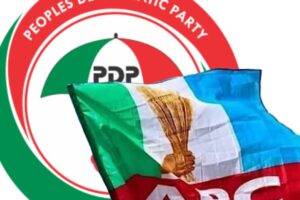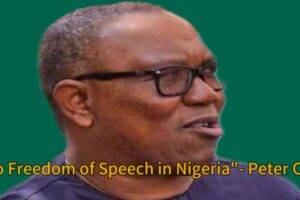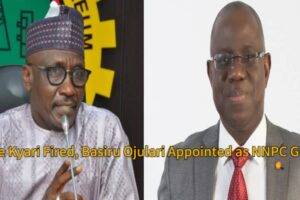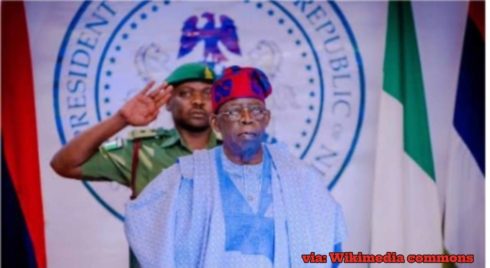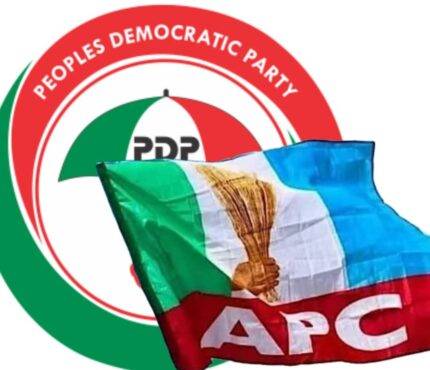In a recent town hall meeting with the business community at the Bristol Hotel in Kano, the Minister of Information and National Orientation, Mohammed Idris, shed light on President Tinubu’s vision for fostering a conducive environment for businesses to flourish. With an emphasis on streamlining regulations, providing investment incentives, ensuring robust infrastructure, and enacting policies for economic stability and prosperity, President Tinubu aims to pave the way for a thriving business landscape in Nigeria.
Under the banner of the Ease of Doing Business initiative, significant strides have been made. The Corporate Affairs Commission (CAC) has been tasked with a 24-hour online registration timeline for new businesses, while the Export Permit application process undergoes revision and automation to bolster Nigeria’s foreign exchange reserves. The revamped approach requires intending exporters to demonstrate formal repatriation of export proceeds before acquiring new export licenses and permits. These measures aim to eliminate bureaucratic hurdles and facilitate smoother business operations.
Furthermore, the reconstituted Presidential Enabling Business Environment Council (PEBEC) is actively collaborating with state governments to dismantle obstacles faced by businesses across the country. Most notably, a new Executive Order signed by President Tinubu is set to revolutionize the oil and gas industry. By reducing operating costs, compressing contracting cycles, and implementing tax incentives, the order is projected to unleash the sector’s vast potential, creating millions of jobs and injecting billions into the GDP.
Unleashing the Potential of the Oil and Gas Sector
One of the focal points of President Tinubu’s economic agenda is the optimization of Nigeria’s oil and gas industry. Currently burdened by high operating costs exceeding the global average by 40%, the sector faces significant challenges. However, with the introduction of the new Executive Order, a paradigm shift is underway. By slashing operating costs and expediting contracting cycles from 38 to 6 months, the order promises to unlock substantial growth opportunities.
Moreover, the Executive Order is expected to yield tangible outcomes, including a significant boost in gas supply, job creation to the tune of 2.3 million positions, and a remarkable $17 billion GDP enhancement. Additionally, the implementation of tax incentives aims to attract up to $10 billion in fresh investments, further bolstering the sector’s growth trajectory.
President Tinubu’s administration is also committed to enhancing security measures in the Niger Delta region, a pivotal area for Nigeria’s oil and gas operations. The efforts have already yielded positive results, evident in the increased NLNG cargoes and crude oil production levels. This proactive approach not only ensures stability in the region but also fosters investor confidence, essential for sustained growth in the sector.
Stimulating Industrialization and Consumer Credit
In line with the broader vision for economic revitalization, the Federal Government has embarked on initiatives to bolster industrialization and consumer credit systems. Notably, import Duty Exemption Certificate (IDEC) letters of recommendation have been issued to 20 manufacturers, facilitating expansion and increased production capacity. Furthermore, the Presidential Council on Industrial Revitalization is actively devising a framework for implementing a robust consumer credit system aligned with global standards.
These measures underscore President Tinubu’s commitment to fostering a conducive environment for businesses to thrive, ultimately propelling Nigeria towards sustained economic growth and prosperity. As the nation embraces these initiatives, the future holds promise for a vibrant and resilient economy, driven by innovation, investment, and inclusive growth strategies.
Reconstitution of National Trade Facilitation Committee by President Tinubu
Under the leadership of President Tinubu, the Federal Government is taking decisive steps to address administrative and operational challenges hindering both domestic and external trade. The reconstitution of the National Trade Facilitation Committee signifies a concerted effort to streamline processes and foster collaboration between relevant agencies and private sector representatives. Spearheaded by the Federal Ministry of Industry, Trade, and Investment, this initiative aims to remove bottlenecks, thereby enhancing the ease of doing business in Nigeria. By convening diverse stakeholders, the government is poised to enact impactful reforms that will stimulate economic growth and attract investment.
Subsidy Interventions and Economic Stimulus
In a bid to mitigate the effects of subsidy removal and bolster the business community, the government has unveiled a series of post-subsidy interventions. Noteworthy among these are the approval of 200 Billion Naira for the Presidential Business Grants and Loans Schemes, the 50 Billion Naira Presidential Conditional Grant Scheme (PCGS) targeting various sectors including traders, food vendors, transport workers, ICT businesses, creatives, and artisans. Additionally, the establishment of the 75 Billion Naira FGN MSME Intervention Fund and the FGN Manufacturing Sector Fund underscores the government’s commitment to supporting small and medium enterprises (MSMEs) and manufacturing businesses. These initiatives, coupled with single-digit-interest loans, are poised to inject vitality into key sectors of the economy, fostering resilience and sustainability.
Accelerated Infrastructure Development and Economic Stability
President Tinubu’s administration is prioritizing infrastructure development as a catalyst for economic progress. With a focus on the power sector, the government is implementing policies aimed at addressing longstanding challenges and enhancing energy accessibility. The collaboration with Siemens Energy of Germany to inject 12,000MW of electricity into the national grid signifies a significant milestone in efforts to bolster power supply. Furthermore, the initiation of the Mass Metering Program and the development of a 20mw on-grid solar-hydro project in Shiroro, Niger State, underscore the government’s commitment to diversifying the energy mix and expanding access to clean energy sources. These initiatives not only foster economic development but also pave the way for sustainable growth and job creation.
President Tinubu’s administration is charting a bold course towards economic revitalization and inclusive growth. Through strategic reforms, subsidy interventions, and infrastructure investments, the government is laying the foundation for a prosperous and resilient economy. With collaboration from stakeholders and sustained implementation of policies, Nigeria is poised to unlock its full potential and emerge as a beacon of economic dynamism in the region.
Table of Contents
Discover more from OGM News NG
Subscribe to get the latest posts sent to your email.


